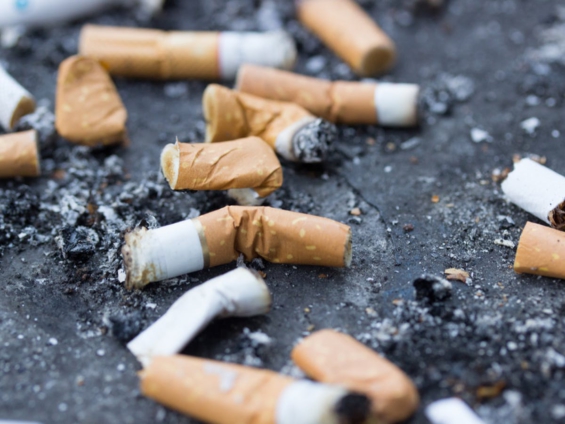Harm Reduction Alliance, Ghana, in joining harm reductionists across the World to celebrate World Vape Day which falls on 30th May, has urged the government of Ghana to pick vital lessons from Sweden which is close to becoming a tobacco-free society.
The occasion, which precedes the celebration of World No Tobacco Day highlights the beneficial effects of reduced-risk products in tobacco control.
According to the Global State of Tobacco Harm Reduction Report, there are 5.012 deaths yearly attributable to tobacco smoking with approximately 644,429 current smokers in Ghana.
This fact was reiterated by the Minister of Health, Kwaku Agyeman-Manu during the launching of the World Health Organization (WHO) Framework Convention for Tobacco Control (FCTC) 2030 project in Accra recently.
The Minister further stated that tobacco smoking is prevalent among young people, and Ghana was faced with a dual burden of disease with the upsurge of non-communicable diseases such as hypertension, diabetes and a wide array of cancers, and the project was timely for the eradication of emerging tobacco control challenges.
The minister further added that, though Ghana had made significant progress in tobacco control with the inclusion of tobacco-specific provisions in the Public Health Act, of 2012, the passage of the tobacco control regulations in 2016 (L.I.2247) and the introduction of graphic health warnings, Ghana still has a long way to go in the pursuit of attaining a tobacco-free country.
But the Harm Reduction Alliance, Ghana, believes Ghana does need not to re-invent the wheel since good examples like that of Sweden can be replicated.
In its statement to celebrate World Vape Day, the Alliance said “Sweden has achieved the feat of reducing the smoking rate by a whopping 80 per cent despite a 30 per cent spurt in population growth.”
“The Swedes began the journey to a smoke-free society with the introduction of snus, a smokeless oral tobacco product usually held in the mouth between the lips and gums which brought the smoking rate down by 55 per cent.”
It noted that policymakers in Sweden had embraced a new generation of alternative risk nicotine products such as vaping and nicotine pouches which had facilitated a further decline in smoking rates, especially among the female population.
“The effects of these tobacco harm reduction efforts had led Sweden to save more than 3,400 lives yearly. It is projected that; the EU could save about 2.84 million lives should they follow Sweden's example. Furthermore, compared to the rest of the EU, Sweden has 44% fewer tobacco-related deaths, 41 per cent lung cancer rates and 38 per cent fewer cancer-related deaths.”
The European Union (EU) in 2021 targeted the year 2040 for Member States to be ‘Tobacco-free’. This is defined to be a smoking rate below six (6) per cent. Two years on, Sweden is on course to achieve a ‘tobacco-free’ society 17 years ahead of the 2040 deadline.
“Sweden's health authorities had implemented a tobacco control policy for the past 50 years where the traditional tobacco control measures recommended by the EU run alongside an openness to alternative reduced-risk products.”
The Alliance believes that “Ghana can adopt and localise the Sweden example by embracing tobacco harm reduction (THR) interventions such as friendlier approaches in regulating reduced-risk products i.e., heated tobacco, nicotine pouches and vapes. This could be implemented alongside the traditional tobacco control measures and education making the country safer for all and attractive to investors.”
It says tobacco harm reduction just like harm reduction in general works on the principle that there are public health interventions which are less costly but effective in achieving health targets, and Ghana as a country must not be oblivious to the benefits of reduced-risk products.
“On World vape day, Harm Reduction Alliance, Ghana would want to be associated with the comments made by the Finance Minister of Sweden in April 2022 – Mikael Damberg – “Tobacco and nicotine taxes are […] structured today so that products are generally taxed based on risk. […] Products that are judged to be more harmful to health have a higher tax.”
“Harm Reduction Alliance, Ghana would like to urge policymakers in Ghana to follow the science and not to be persuaded to make policies based on morality and ideologies. By following the example of Sweden, Ghana could save lives, improve public health outcomes, and alleviate the burden on healthcare resources” the Alliance reiterated.
It added that, through education and regulation of traditional tobacco and the provision of safer alternatives, Ghana can empower its citizens and other people living in Ghana to make informed choices and transition from traditional combustible tobacco products.
Harm Reduction Alliance, Ghana is a member of the West African Drug Policy Network and the Ghana Network on Drug Policy Reforms. It advocates for the adoption of harm reduction interventions and provides outreach services for the key population of people who use drugs.
Latest Stories
-
Togbe Afede XIV calls for drastic restructuring of Bank of Ghana
3 hours -
Eric Johnson
3 hours -
Djokovic struck by water bottle at Italian Open
3 hours -
777 call in finance experts as Everton uncertainty grows
3 hours -
Casemiro left out of Brazil squad for Copa America
3 hours -
Chelsea sacking would not be a problem – Pochettino
3 hours -
Man Utd owners have ‘common sense’ – Ten Hag
3 hours -
Nduom hints at #BringBackGNBank nationwide campaign
7 hours -
GWCL staff locked up, assaulted for disconnecting defaulter
8 hours -
Akufo-Addo, Asantehene commission Prempeh I International Airport, Kumasi
8 hours -
We are confident about board meeting in June on Ghana’s second review – IMF
8 hours -
Eugene Osei Tutu: Who can lay claim to Kumasi International Airport- Mahama or Akufo-Addo?
9 hours -
Mbappe confirms he will leave Paris St-Germain
9 hours -
CAA Region II Athletics Championships will be properly organised – Dr Baah-Nuakoh
9 hours -
Over 185 state bungalows for public servants near completion in Ashanti Region
9 hours

